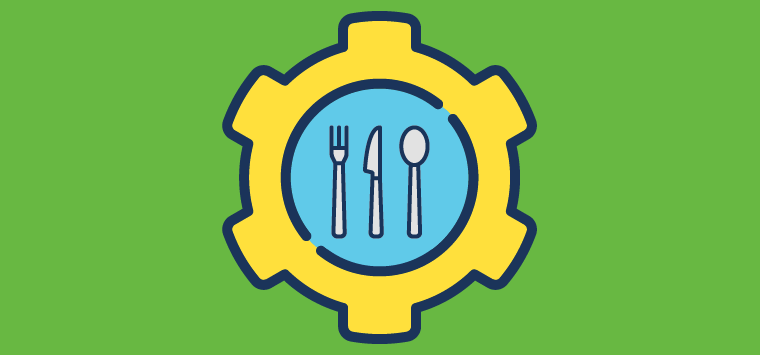Meal and Rest Break Compliance: Keep Better Track of Work Break
As most U.S. employers know, work breaks are a tricky subject. That’s because some government agencies don’t currently require companies to offer work breaks to employees.
Federal law does not require lunch or coffee breaks. However, when employers do offer short breaks (usually lasting about 5 to 20 minutes), federal law considers the breaks as compensable work hours that would be included in the sum of hours worked during the workweek and considered in determining if overtime was worked. Unauthorized extensions of authorized work breaks need not be counted as hours worked when the employer has expressly and unambiguously communicated to the employee that the authorized break may only last for a specific length of time, that any extension of the break is contrary to the employer’s rules, and any extension of the break will be punished. Meal periods (typically lasting at least 30 minutes), serve a different purpose than coffee or snack breaks and, thus, are not work time and are not compensable, according to the Department of Labor.
The many federal, state, local and union requirements concerning meal and rest breaks can take a lot of work for employers to manage.
For small businesses with limited resources and larger companies that employ workers across state lines – staying compliant with work breaks can become quite a challenge. Regardless of business size, it requires accurately calculating wages, distributing overtime pay, determining payroll tax withholdings, depositing tax liabilities and filing returns on time.
With the rising cost of labor, companies need tools to manage breaks and lunches. This visibility will allow managers to address performance issues related to employees who are not taking breaks. Scheduling tools also provide the ability to ensure that employees have the appropriate time available for breaks and lunches.
Audits are of significant concern as they verify adherence to federal, state, local, and union regulations. The system must possess the capability to promptly report instances of missed or delayed breaks and lunches, in addition to documenting the measures taken to ensure that affected employees are duly compensated and that the issue is effectively resolved, thereby enabling employees to take their breaks and lunches as required.
These are all especially valid concerns for cleaning and security companies with distributed teams. Guards and cleaners typically clock-in and out of shifts at multiple locations where supervisors cannot always remain on site. However, compliance software offers support in several ways.
Tracking and editing work breaks
An integrated solution with compliance software can help businesses meet requirements while avoiding litigation, fines or penalties. Specifically, it helps with tracking and reporting work break information to help companies meet state, local, union and company-specific regulations.
With the right software solution, the correct personnel can be kept informed to support meal and rest compliance via timekeeping, reporting and notification features that can provide documentation to show that employees are spending the appropriate amount of time on breaks.
Once activated and configured, supervisors can receive notifications when employees clock-in or out for work breaks, or if there are missed or late punches. Notifications can alert supervisors if a meal hasn’t been started after a certain amount of time into a shift. Additionally, employees can be notified if they’re checking back into work before their lunch or break is taken in full.
In addition to getting alerts when employees clock in and out for work breaks, supervisors can also view specific clock in and out times. The correct personnel can also view, add, delete or edit time punches. Accordingly, it is possible to clean up the collected data if the information must be corrected due to human error.
Reporting on meal and rest breaks
Compliance software with timekeeping and reporting capabilities can offer detailed information about work break exceptions and violations. For example, employers can review enhanced timekeeping and punch types to track unpaid and paid meals or paid and unpaid breaks.
With the different reports, managers can better review compliance regulations to create appropriate company guidelines concerning work breaks. These reports are also designed to help managers better understand and identify missed, shortened or lengthy work breaks. Three key TEAM Software reports that perform these functions include:
- The TeamTime Meal and Rest Hours Review Report: displays an uploaded and non-uploaded, original view of records to aid in determining compliance with meal and rest guidelines
- The Personal Scheduling Meal and Rest Report: compliments the Enhanced Reconciliation tool by displaying TeamTime records that are available in Personnel Scheduling
- The Payroll Meal and Rest Report: used to review TeamTime records for conformity with meal and rest compliance and this window also includes a process to add premium pay timekeeping records
With timekeeping software, business owners employing workers on sites across state lines can set up separate settings. Configurable tools ensure workers are staying in compliance with state laws for different roles.
TEAM Software and compliance with work breaks
For employers, meal and work breaks are inherently complex. This is due to the many different state-wide laws that business owners are required to know and follow. Because of those regulations, companies must perform diligent timekeeping and accurate reporting-related tasks while consistently catching and editing inaccuracies.
TEAM Software offers solutions for cleaning and security professionals to remain compliant with meal and rest breaks. Our tools can send notifications to the right people at the right time. This ensures meal and rest breaks are taken and completed in a timely manner.
The compliance tools have completely configurable default settings. Business owners can choose the kind of notifications their employees and managers will receive.
Companies can access work break clock in and out times that are automatically shared with scheduling and time management solutions. To get more information and speak with a TEAM Software representative who can answer questions about our solutions, schedule time with one of our experts.
